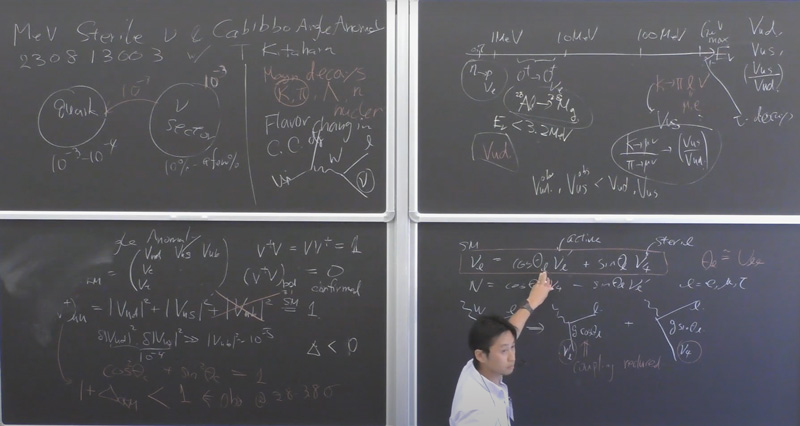Disclaimer: machine translated by DeepL which may contain errors.

I specialize in particle physics theory and currently teach at Florida State University. I use a wide variety of data, from astrophysics to precision measurements and accelerator experiments, to search for traces of new subatomic particles. At first glance, it appears to be smooth sailing, but in reality, things have not always gone as planned.
In graduate school, he entered the Kavli Institute for the Physics and Mathematics of the Universe as a first-year student. I was expecting a stimulating environment with many foreign researchers, but the master's course was tough. My advisor, Professor Hitoshi Murayama, was both Director of OIST and a professor at UC Berkeley, so the time available for in-depth discussions was limited. I managed to complete my master's thesis with the help of other researchers in Hongo and Kashiwa. It was a tough experience, but it prepared me for being an independent researcher. The confusion, enthusiasm, and sense of unity at the time of the organization's launch were also unforgettable experiences.
Science is also a human activity, and human relationships are really important. D. program went relatively well, and I did some joint research in Berkeley, but I did not receive the post-doctoral offer from the U.S. that I had hoped for. On the other hand, I was approached by an Israeli researcher who visited the University of Tokyo, and I gave him a tour of Shibuya, and he told me to apply for a position at the University. I thought it was just a social call, but in fact I received an offer for a joint post-doctoral position at the Weizmann Institute of Science and Tel Aviv University. I realized that not only research ability but also "the kind of person" is considered important when hiring.
Even after having experienced the research environment in Japan and the U.S., life as a postdoctoral fellow in Israel was a shock. First of all, I was overwhelmed by the loud physics discussions by assertive Israelis. Novelty was emphasized, and professors would come up with outlandish ideas with a cup of coffee in the morning, and we would squash them one after another. Sometimes it would go on all day. After dozens of such exchanges, a shining idea would eventually emerge. In addition, because the Professor himself would say things recklessly, it was easy for the younger students to speak up, and a creative atmosphere was fostered. Although there were many inconveniences in terms of daily life, the deep human relationships we built while helping each other were an asset to my life.
After that, I started looking for a tenure-track position, and although I was unsuccessful the first year, I was invited for an interview at my current university in the second year. In the U.S., the emphasis is on accomplishments, background, and letters of recommendation until you get to the interview stage, but in the end, the campus interview is much more important, and the tables can be turned. Since I had just had my first child and was looking for stability in my life, I went in for the interview with a single-minded determination and was selected for the position. I have been living in Florida for seven years and am enjoying a life surrounded by abundant nature.
I think I have learned a great deal from the challenges I have taken on in this environment that I happened to find myself in. I hope that those of you who are choosing your future career paths will not be afraid to take on the challenges of new environments, laboratories, and unknown countries.

Lecture at the Galileo Galilei Institute for Theoretical Physics


